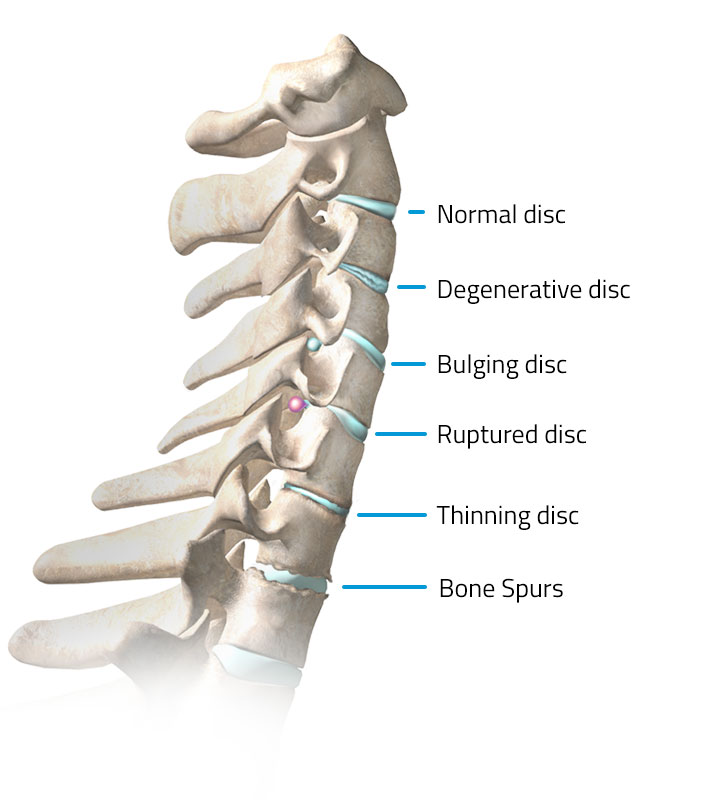Examples of Cervical Problems that Result in Neck and Arm Pain
Neck and arm pain is often the result of cervical disc degeneration in the neck due to age or injury to a vertebral disc. Here are some examples of conditions that can cause neck and arm pain:
- Degenerating disc: A vertebral disc can deteriorate through a traumatic injury or simply through the natural aging process.
- Bulging disc: A bulging disc is the result of a tear or rupture in the vertebral disc. The disc’s soft, gel-like center will then bulge out, placing pressure on the nerves and spinal cord.
- Ruptured or herniated disc: A ruptured or herniated disc occurs when stress from the surrounding vertebrae causes the outer layer of the disc to tear or rupture. A ruptured disc will cause a patient pain, numbness or weakness in the neck, shoulders, arms and hands.
- Thinning or flattening disc: As the body ages and vertebral discs start to wear down, the discs begin to flatten or thin. This forces the vertebrae closer together and puts additional stress on the disc, surrounding joints, muscles and nerves.
- Bone spurs: Bone spurs (or osteophytes) are another condition caused by increased stress on vertebrae. Sometimes bone spurs will press against nearby nerves or the spinal cord, resulting in pain, weakness, tingling or numbness in the neck, shoulders, arms and hands.
